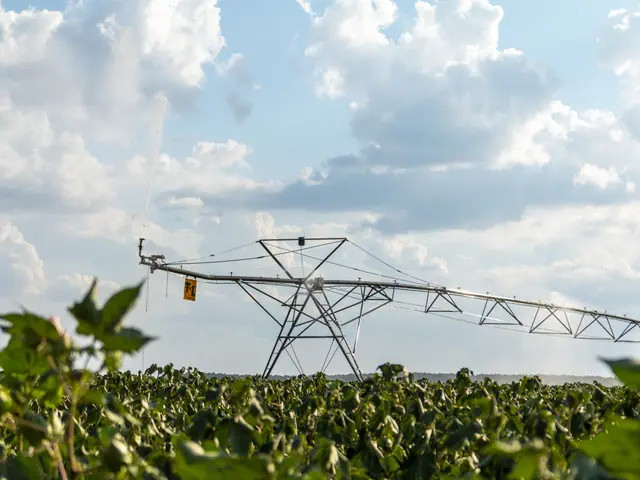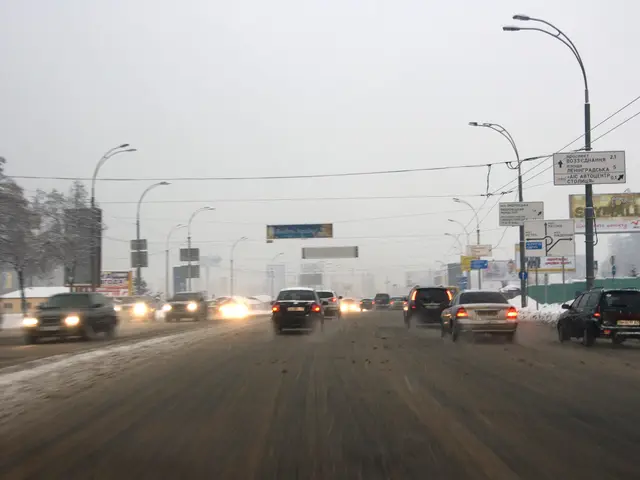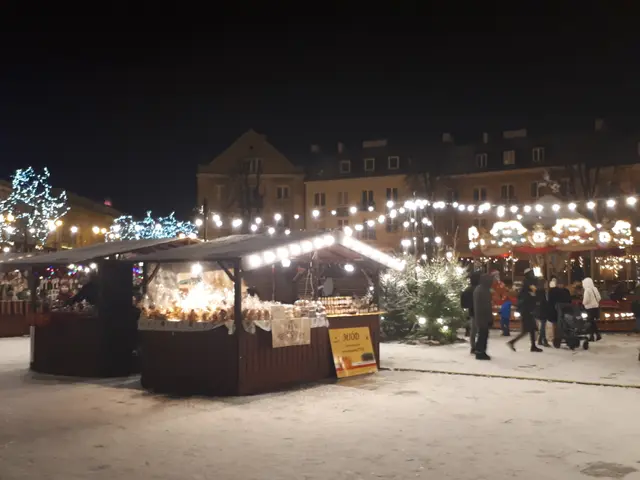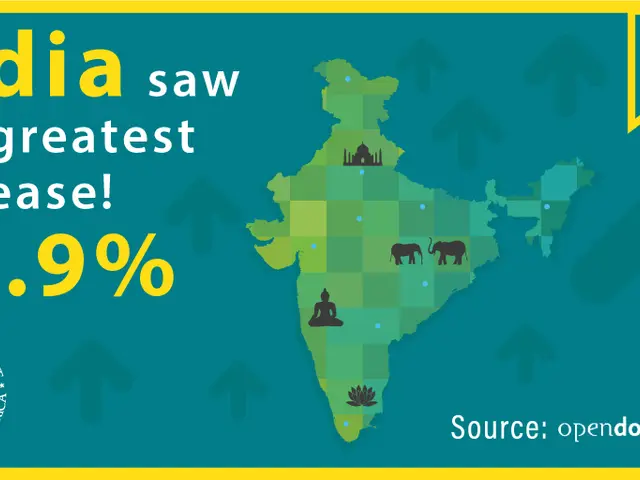North Korea acknowledges deployment of troops to battle alongside Russia in Kursk Oblast region.
North Korea's Troops Joins Fight Alongside Russian Forces in Kursk – A Turning Point in the Conflict?
In a surprising revelation, North Korea has confirmed that its troops have been deployed in Kursk Oblast, fighting alongside Russian forces, under the orders of Kim Jong-un. This marks the first instance of such confirmation by the reclusive nation.
According to state-run KCNA news agency, this deployment showcases the "highest strategic level of the firm militant friendship" between North Korea and Russia.
The announcement comes as the acting commander of Russia's 810th Brigade told President Vladimir Putin that the remaining Ukrainian troops in the Kursk region would eventually meet their demise, contradicting earlier claims made by Kremlin spokesperson Dmitry Peskov about the complete recapture of the area.
President Volodymyr Zelensky affirmed that the fighting in Kursk Oblast is ongoing.
Ukraine initiated a surprise cross-border incursion into Kursk Oblast in August 2024, marking the first significant invasion of Russian territory by foreign forces since World War II. The operation aimed to disrupt a planned Russian offensive on the neighboring Sumy Oblast and draw Russian forces away from the embattled Donetsk region.
As of April 25, Ukrainian battlefield monitoring service DeepState showed Ukrainian forces holding onto limited positions in Kursk Oblast near the border, primarily in the villages of Oleshnya and Gornal.
The Central Military Commission of the Workers' Party revealed that Kim authorized the deployment based on the comprehensive strategic partnership treaty he signed with Russian President Vladimir Putin in 2024. "Under the order of the head of state, the sub-units of the armed forces of the Republic regarded the territory of Russia as the one of their country and proved the firm alliance between the two countries," read the statement.
Kim lauded the North Korean soldiers who participated, calling them "heroes and representatives of the honor of the motherland." KCNA also reported North Korea's pride in having an alliance with the "powerful state" of the Russian Federation.
Ukrainian officials estimate that around 11,000 North Korean troops were dispatched to Russia, with 3,000 reinforcements to replace battlefield losses. Although initially enduring heavy casualties due to their lack of armored vehicles and experience with drone warfare, North Korean troops adapted to the ground conditions.
The deployment of North Korean forces in the conflict has significant implications. On the one hand, it escalates foreign involvement and deepens the Russia-North Korea alliance. On the other hand, it raises legal and diplomatic issues, with foreign troops being present in occupied territories and potentially leading to additional nations becoming embroiled in the conflict's diplomatic fallout.
Russia also confirmed on April 26 that North Korean forces fought alongside Russian troops in the Kursk region. Previously, neither Moscow nor Pyongyang publicly acknowledged the deployment. This collaboration signals both parties' willingness to formalize military cooperation, potentially encouraging other nations to declare their allegiance more explicitly in the conflict.
- Escalation of Foreign Involvement: The deployment marks North Korea as a direct combatant in Russia's war efforts, beyond its role as an arms supplier.
- Geopolitical Alignment: Open military cooperation strengthens the Russia-North Korea alliance, underscoring deepening anti-Western cooperation between sanctioned states.
- Tactical Impact: North Korean units contributed to Russia's regaining control of Kursk Oblast after Ukraine's surprise August 2024 incursion.
- Legal and Diplomatic Implications: The involvement of foreign troops in occupied territories complicates international law considerations and risks dragging more nations into the conflict's diplomatic fallout.
- North Korea's confirmed deployment of its troops in the Kursk conflict in 2024 represents a significant escalation in foreign involvement, as the reclusive nation now stands as a direct combatant in Russia's war efforts, transcending its previous role as an arms supplier.
- This military cooperation between North Korea and Russia serves to add strategic depth to their alliance, highlighting an expansion of anti-Western solidarity between states under international sanctions.
- The active participation of North Korean troops in the Kursk region from August 2024 contributed to Russia's successful retaking of the Kursk Oblast, demonstrating the impact of this alliance on the battlefield.
- The presence of foreign troops within occupied territories brings forth complications regarding international law and poses a risk of drawing additional nations into the diplomatic ramifications of the war-and-conflicts in question.








